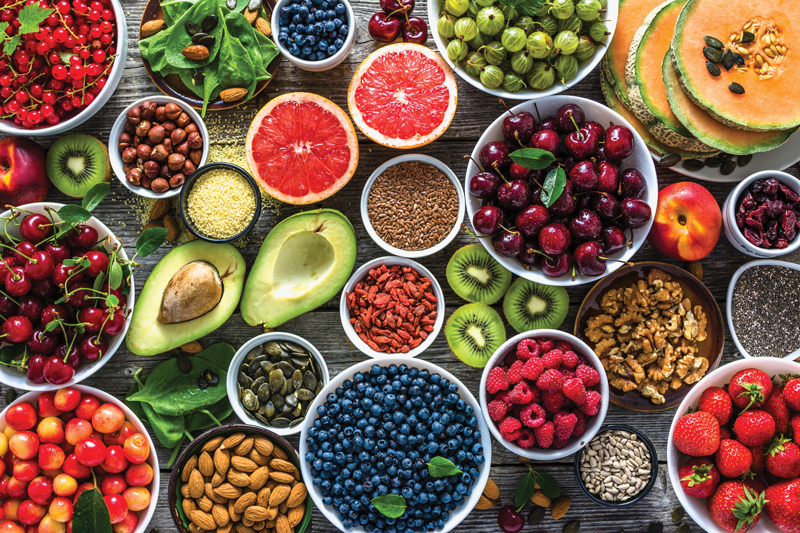We are all aging—but we are also living longer lives, so it is important to keep our bodies and minds as healthy as possible. Here are a few tips to help us get the most out of those years.
1. Be Active
It doesn’t need to be a marathon. Even walking is a great for physical and mental health. Keeping active helps keep us fit and allows us to be independent in continuing to do the activities enjoy as we grow older.
2. Get Enough Sleep
According to Chinese medicine, it is important to go to sleep before 11 pm. Since the liver and gallbladder do their work from 11 pm–3 am, it’s best to be asleep during those hours. It has also been proven that we experience the deepest part of our sleep in the beginning of our sleep cycle; this is called the slow wave sleep (SWS) and during this time less cortisol is produced, allowing us to fully rest and recover.
3. Eat Whole Foods
It is best to have a diet of fresh vegetables, fruits, and whole grains along with protein such as fish. These foods create an alkaline state in the body that we need to stay healthy and fight disease. Foods such as red meat, sugar, processed foods, and refined carbohydrates create an acidic environment that can cause inflammation, disease, high blood pressure, diabetes, and cancer.
4. Stimulate Your Brain
Alzheimer’s disease is on the rise in the U.S. Using your brain to learn new things has been shown to slow cognitive decline. Start a hobby, learn a new language, play bridge, or do crossword puzzles—anything that interests you and keeps your mind active.
5. Get Involved in the Community
Whether it is volunteering or becoming part of club or a committee, being a part of a group can create positive feelings and prevent depression and loneliness. Make friends, make an impact, and help improve your community and your relationships.
6. Manage Stress
Find tools to remove or relieve stress from your everyday life. Meditation is a very effective way to calm the mind, and tai chi and qigong are ancient techniques using slow-moving exercises and breath work to slow the heart rate, become mindful of the body, and get out of our head.
7. Herbal Medicine
- Ashwaganda: An adaptogen that helps manage stress, boosts brain function, and lowers blood sugar and cortisol levels.
- ECGC found in green tea:
A compound that fights inflammation, boosts memory, lowers cholesterol and risk of stroke, helps type 2 diabetes, and helps weight loss. - Curcumin found in turmeric:
An anti-inflammatory herb that helps with arthritis, IBS, and autoimmune responses. - Ginkgo: Known as the brain and memory herb, ginkgo can help
prevent Alzheimer’s disease.
8. Vitamins
Here are a few important vitamins to keep us young and healthy:
- Calcium: In an absorbable form such as calcium lactate or calcium citrate are the most absorbable. Calcium carbonate, like that found in antacids, is less absorbable and therefore not ideal. Foods with calcium include hard cheese; unsweetened low-fat yogurt; leafy greens such as collard greens, spinach, and kale; seeds such as chia, sesame, poppy, and celery; beans, especially wing and white beans; lentils; sardines and canned salmon; almonds, tofu, and edamame; amaranth grain.
- Vitamin B12: This vitamin helps make blood and nerve cells and can be found in foods such as meat, fish, eggs, and dairy.
- Vitamin D: We need vitamin D to absorb calcium. The sun is our best source of vitamin D we absorb less as we age, so a supplement is a good idea. We can get additional vitamin D from salmon, sardines, and mackerel.
- Vitamin B6: Vitamin B6 is required to make energy and fight germs, but we make less as we age. Chickpeas, fatty fish, and liver are great sources of B6.
- Magnesium: This mineral helps us to stay calm, helps prevent muscle cramps and constipation, and aids in building protein and bone.
- Probiotics: Since most of our immune system is in our gut,
we need to keep our gut flora at optimal levels to fight infection and keep our digestive system functioning properly. Fermented foods like sauerkraut, kombucha, and some yogurt or kefir have various levels of probiotics. Supplements are a good choice as well. - Omega 3s: These essential fatty acids are important for the brain and eyes and can help protect against Alzheimer’s. An important benefit from omega 3 is inhibiting or reversing inflammation such as arthritis, IBS, and other autoimmune disease. We can find omega 3s in fatty fish, walnuts, canola oil, and flaxseed.
- CoQ10: CoQ10 is an antioxidant important for energy production and protection from cellular damage.
- Zinc: Used to fight infection and inflammation and for eye health, zinc can be found in a variety of sources, including shellfish—particularly in oysters—as well as in legumes (chickpeas, lentils, beans), seeds (pumpkin, sesame), and nuts (pine nuts, cashews, peanuts, and almonds).
9. Stay Positive
A positive attitude changes the way we perceive the world around us. It changes our cells and our chemistry. Be grateful and write your positive feelings down in a journal. Sometimes we just need to be reminded that the glass is half full. My favorite, simple way to promote happiness is remembering to smile because it actually creates positive hormones in your brain. Smile to others but most importantly, smile to yourself every day.
Donna Bunte of Donna Bunte Whole Health is an Integrative Nutrition Health Coach and Chinese medical practitioner in Stamford, CT. Since 1995, Donna has been helping busy people manage their stress, diet, and health concerns using coaching, nutrition, herbal medicine, and mind–body techniques in order to reach their health goals.
She can be reached at 203.253.9885 or health@donnabunte.com. Visit: www.donnabunte.com and find her on Facebook at: facebook.com/donnabuntewholehealth and Instagram at: instagram.com/donnabuntewholehealth/.
